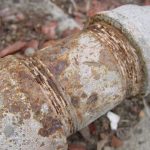Living in Los Angeles means enjoying sun-filled skies and gorgeous beaches, but we still face plumbing emergencies from time to time. Be it leaking pipes, clogged drains, or dripping faucets – being prepared and knowing how to respond swiftly are essential skills when managing emergency situations in our homes in LA. Here’s our handy guide on managing plumbing emergencies efficiently so that your home remains safe from damage!
Steps to Take in an Emergency Plumbing Situation
When faced with a plumbing emergency, swift action are needed in order to mitigate damages to your home and prevent further complications. Here are the immediate steps you must take in order to manage it effectively.
Shutting Off the Water Supply
One of the first and most crucial steps of any plumbing emergency is turning off its source. If it involves only a specific fixture or appliance such as a sink or toilet, for instance, then simply shutting its individual supply valve can solve it quickly. These are usually located nearby near fixtures themselves or under sinks/toilets; simply turn it clockwise until fully closed to stop any further flow through that specific area.
For larger floods involving multiple pipes and valves, shutting off your main water source could be essential to keeping the issue from worsening. This valve can usually be found near your water meter or where the main supply enters your home; familiarize yourself with its location before an emergency strikes to be safe.
Turn Off the Water Heater
In an emergency, turning off your water heater may help avoid further damage to both your plumbing system and its heating unit, and ensure both you and your family’s safety. With electric water heaters, this means switching off their circuit breaker. With gas water heaters there should be a valve on their gas supply line which can be manually shut off to stop gas from reaching it directly. Once all relevant systems have been switched off open all hot water taps around your home to relieve pressure build-up within your piping systems while draining out any excess hot water that remains.
Small Leaks
Plumbing emergencies can quickly escalate if left unaddressed, with even minor leaks becoming serious problems if left ignored. Therefore, it is vital that any small leaks that appear be addressed as soon as they are noticed to prevent further damage and costly repairs in the future. Here are a few steps you can take in order to effectively address smaller leaks in your plumbing:
- Locate the source of leak.
2. Place a bucket under any dripping pipes and stuff towels or rugs around them.
3. Utilize plumber’s tape or putty for temporary fixes.
4. Tighten any connections as necessary Contact professionals if necessary.
Drain Your Pipes
Even after shutting off the main valve, there may still be water remaining in your pipes. Draining this extra water will help to minimize further damage and allow for easier diagnosis of its source. Taking measures outside will minimize further damage; opening outdoor faucets is another effective solution; but be careful not to force anything too hard when opening these outdoor spigots as this could cause more harm. Most outdoor faucets feature small shut-off valves which need to be opened first in order to drain correctly – use wrench if necessary but do not over tighten it as this could result in more serious consequences.
Call a Professional Plumber and Listen
Calmly seeking professional plumbing help during an emergency is essential to efficiently solving it. Make sure to gather information beforehand, listen carefully to their instructions, be honest in your communication, and trust their expertise. Clearly communicate what’s happening and be upfront with any past attempts or troubleshooting attempts so they can accurately assess the situation upon arriving. If anything remains unclear or concerns arises don’t hesitate to ask questions for clarification or get additional answers from them.
Common Plumbing Emergencies and How to Address Them
Plumbing emergencies can arise at any time and be extremely unnerving to deal with. Knowing how to manage different plumbing emergencies is essential in saving both time and money as well as stress in managing these situations effectively. Before making decisions based on identification of specific emergencies – below are a few common examples and what you should do should they occur in your life.
Extremely Hot Water
One plumbing issue homeowners can encounter is extremely hot water. In this instance, the most likely cause will likely be a defective water heater. As soon as this becomes an issue, check your temperature settings on the heater in case someone inadvertently turned them up too high; otherwise turn it off completely and let all hot water drain out through taps until it cools off completely before calling in a professional plumber who can diagnose issues in your plumbing system or offer recommendations to repair or replace faulty parts such as thermostats and valves etc.
Dripping Faucets
While faucet leaks might seem minor, left unaddressed they can quickly escalate into bigger issues and higher water bills. When this occurs, first turn off the main valve to stop supply; if you are familiar with basic DIY tasks then try dealing with it yourself as soon as possible.
For most problems related to faucet handles, the cause can usually be traced back to a damaged or worn-out washer inside. This washer helps create a tight seal to stop water continuously flowing out of the faucet; over time due to exposure to hard water minerals it deteriorates, leading to leakage. In most cases, you can attempt replacing it yourself using tools like pliers and screwdrivers, however if your skills or tools don’t meet professional standards it may be wiser to call on an expert plumber instead.
Leakage on Pipes
A leaking pipe can quickly become an urgent situation if left unaddressed, resulting in water damage, mold growth and structural damages to your home. Therefore it’s essential that a qualified plumber be hired as soon as possible; until then there are steps you can take while waiting for assistance to arrive – turning off main water source, trying to locate source of leak and clearing any standing water near affected area to mitigate further damage until professional assistance arrives.
Hot Water Leaks
If you detect signs of hot water leaking from your water heater unit or pipes and valves, such as pooling water at its base or dripping from its pipes or valves, it is crucial that immediate action be taken. In such an emergency, switch off all power supplies as soon as possible in order to stop further leakage and protect your assets. If your water heater is electric, locate and switch off its circuit breaker; for gas heaters use the shutoff valve near it to do this. Finally, switch off all main water supplies in your home. An emergency water heater leak is a plumbing emergency that demands prompt action to prevent further damage to the home. Once completed, make sure to seek professional help so as to resolve it as soon as possible and mitigate potential property damages.
Plugs and Clogs
Clogs occur when debris such as grease, hair or other materials become lodged in pipes or drains and prevent water from moving freely through them. Left untreated, these plugs and clogs may lead to overflowing toilets, slow draining sinks or even burst pipes which require treatment immediately or else cause serious issues.
Good news is, there are steps you can take on your own to address plugs and clogs before calling a professional plumber. First and foremost, never use chemical drain cleaners on fully clogged lines as these could end up doing more harm than good by damaging pipes. Instead, try using a plunger or natural drain cleaner made from vinegar and baking soda. For minor clogs in sinks or showers with built-in stoppers or strainers, removing these may help clear away hair or debris accumulations and clean out drain. Pouring boiling water down the drain may also help break up any greasy buildup causing the blockage; but in severe cases requiring professional services it may be necessary.
Toilet Issues
Dealing with toilet troubles in an emergency plumbing situation is one of the most urgent and stressful problems to face, affecting everyday routines significantly and leading to significant disruption. Knowing what steps are taken in case of such an incident is essential in responding effectively and quickly.
If the toilet is overflowing or leaking, immediately shut off its water supply valve located behind or beside it to avoid further flooding and damage. If an obstruction is causing the clog, use a plunger specifically designed for toilets to dislodge it – applying continuous downward pressure while plunging. If that fails or you suspect more serious underlying issues exist, contact a licensed plumber for help as they have tools like plumbing snakes and augers that can effectively unclog stubborn clogs without damaging pipes.
One common toilet issue is when they continue running after flushing, leading to wasted water and higher utility bills. This could be caused by an issue with either the float valve or flapper which needs replacement – you may be able to take care of this yourself following instructions online or from your toilet manual.
Waste Smells
Waste smells can be unpleasant, as well as an indicator of an emergency plumbing situation. One cause of these unpleasant odors may be an accumulation of debris such as hair or grease in a drain that prevents waste water from freely moving through, leading to back ups in pipes clogs that produce foul odors from the build-up of waste material and waste that builds up over time.
Chemical drain cleaners should be avoided to avoid further worsening of the problem by corroding pipes or producing toxic fumes, instead trying using a plunger to dislodge any blockages. If you cannot clear a clog yourself or multiple drains emit foul odors, this may indicate larger problems within your sewer line or septic system that need to be addressed immediately in order to prevent costly repairs and potential health hazards.
Whirring Garbage Disposals
Garbage disposal systems, while generally beneficial, can sometimes do more harm than good when encountering obstacles or completely breaking down. When this occurs, one of the first indicators will likely be an abrupt shift in sound: instead of hearing its typical hum or grind noises emanating from it, an unfamiliar whirring sound may emanate instead – possibly signalling something is stuck between its blades, or they have become dulled and can no longer efficiently chop food waste into small particles.
When dealing with a noisy garbage disposal, always switch its power off by unplugging or flipping its circuit breaker; this will help avoid accidents during troubleshooting. Next, inspect for visible obstructions or foreign objects inside. Never enter it without first making sure there’s no power running; use tongs or pliers instead for more delicate removal tasks if any obstructions exist.
However, in certain instances a whirring sound could indicate more serious issues, including motor failure and electrical malfunction. When this occurs it’s wise to contact an experienced plumber who can accurately diagnose and address the problem without causing further damage.
Plumbing Services and Emergencies
Although plumbers might not be your first thought when faced with a gas leak emergency, their expertise may be essential in finding and fixing it swiftly and safely.
When detecting the distinctive rotten-egg smell of a gas leak, take immediate action to shut off all accessible gas valves and leave your home immediately. Remaining within an area with an active gas leak poses significant dangers both to people and animals alike, potentially leading to poisoning or fire – all which pose potential threats that cannot be taken lightly.
Prevent Plumbing Emergencies Now
Being knowledgeable of your plumbing system and knowing how to prevent plumbing issues will save you both time and money in case of an emergency. Here are some tips on avoiding an unnecessary plumbing emergency altogether.
- Learn your plumbing system – familiarize yourself with where the main shut-off valve is, how to turn off individual fixtures and the layout of pipes.
2. When in doubt, consult professionals – DIY repairs without adequate knowledge and experience can
often become more complex and more expensive over time, leading to property damage, time waste
and voided warranties.
3. Don’t use drains as garbage bins – avoid disposing of items like cooking grease, coffee grounds,
eggshells, wet wipes or kitty litter in sinks and toilets.
4. To prevent leaks and corrosion in your plumbing system, regularly maintain and inspect it – make
sure that leaks, corrosion or any unusual sounds are addressed, worn-out fixtures or parts should be
replaced as soon as they arise and any leaks addressed promptly.
5. Be cautious when using chemicals – while chemicals may provide quick solutions, they could also end
up harming both you and your plumbing system if used recklessly. It is therefore wise to use limited
quantities when dealing with plumbing emergencies.
Keep Your Home Secure By Being Prepared and Maintaining Safety on an Emergency Alert Plan
Preparing for a plumbing emergency in Los Angeles can save time, money, and stress. By following these tips and having a plan in place, you can confidently handle any unexpected plumbing issues that arise. Always put safety first if the situation becomes overwhelming or complex; don’t let a plumbing emergency disrupt your lifestyle in LA–stay calm, follow these steps, and restore order as soon as possible! Always contact your local plumber for a professional advice.





